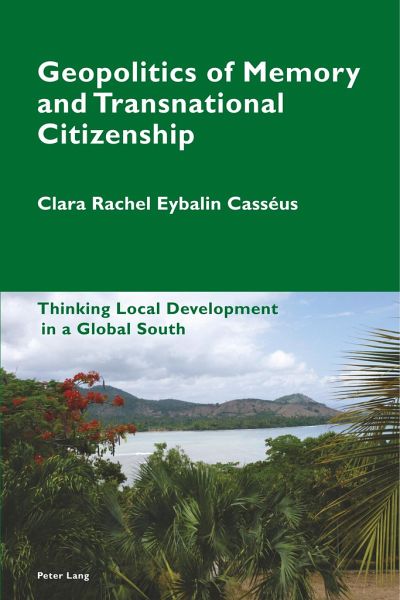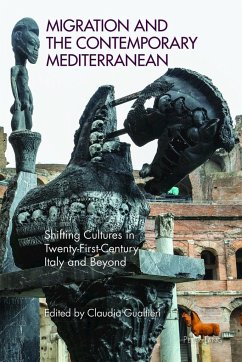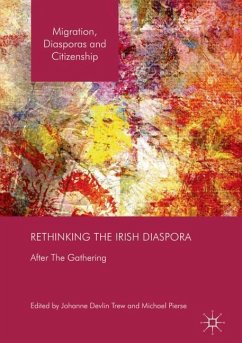«Clara Rachel Eybalin Casséus's Geopolitics of Memory and Transnational Citizenship is an exciting interdisciplinary work bringing together memory studies, archival work, ethnographic interviews, and a decolonial praxis. Eybalin Casséus's politics of re-reading otherwise begins in pre-Columbus Haiti, an alternative longue durée perspective which passes through colonial Saint-Domingue, arrives in the present-day Caribbean and its many diasporas, and points to alternative transnational Caribbean futures. Her comparative focus on diasporic Haitian and Jamaican expat «associations» (organizations) connects histories in Haiti, Jamaica, France, England, Guadeloupe, French Guiana, Martinique, Cuba and Italy, putting South-South networks in
dialogue. This allows for on-the-ground comparisons between La Francophonie and the Commonwealth, as well as productive discussions and alternative considerations regarding idées reçues around so-called British Multiculturalism and French Intégration. She reads circularity as «the sum of mobilities» and brilliantly brings postcolonial theoretical concepts such as creolization and Tout-monde back to earth, while demonstrating the ways in which colonial and postcolonial traffic move in multiple directions. Eybalin Casséus's work offers not just palimpsests of memory, but productive matrices, via: the museum, the archive, the port, the association, the movement of capital and its resulting displacements, the map, the ship, the sacred, the neighbor, the exile, the hurricane, the earthquake, the migrant, the host, the guest, and the silences. It is a welcome addition to Caribbean Studies.» (Professor Megan C. MacDonald, EURIAS Residential fellow, 2018-2019 / IMéRA - Institut d'études avancées d'Aix-Marseille Université and Assistant Professor of English and Comparative Literature, Koç University, Istanbul)
«With this engaging volume about transitional networks of Caribbeans in the diaspora, the author presents an insightful analysis of contributions to development as well as social and political participation in the homeland and host land. Clara Rachel Eybalin Casséus enriches the literature on decolonised knowledge by successfully studying individual and collective memories of the colonial past, and therewith contributes to discussions about Colonization and Chinafication in the Global South. It is a valuable volume to the literature of CARICOM member states. Advisable to academics, politicians, policymakers and those interested in the Caribbean and the Global South.» (Dr Betty Sedoc-Dahlberg, Ph.D. Social Sciences U. of Amsterdam/The Netherlands. Past and last Rector Magnificus of the University of Suriname)
«In her latest monograph, Clara Rachel Eybalin Casséus demonstrates expertise in the pioneer field of cultural and political geography. While this discipline is relatively new, the subject matter is acutely newsworthy: it is about migrants and diasporas. The quality of Clara Rachel Eybalin Casséus's study of migratory geographies is that she studies not only the relation between immigrants or their descendants with their host states --- which is how scholars usually conduct research on migration --- but she also studies the relationship of emigrants with their land of origin after the move has occurred. The result is a remarkably interesting comparative study of collective representations connecting France and the UK to Caribbean islands (Haiti and Jamaica). The study is based on field research including thorough investigations of communities and organizations in the aforementioned countries and interviews of hundreds of individuals, besides analysing rich primary and secondary archival sources and field trips to Guadeloupe, Martinique and French Guiana. The purpose was to test transnational networks between families and associations in the Hexagon and its overseas territories with a focus on the associational activism of Haitians, whether in the French Antilles or the Hexagon and beyond in the Global South. Clara Rachel Eybalin Casséus opens rich new perspectives in her successful attempt to answer questions about: multiple loyalties, notions of citizenship and transnational politics in a geopolitical space, and the representations of belonging. Clara Rachel Eybalin Casséus's book will be most useful as a model of research methodology for anyone studying migration.» (Professor Oleg Kobtzeff, Fellow, Royal Geographical Society and Associate Professor, Political & Environmental Geography, American University of Paris)














